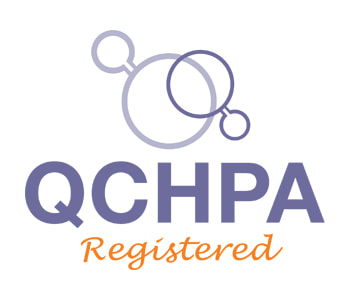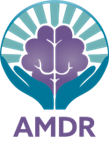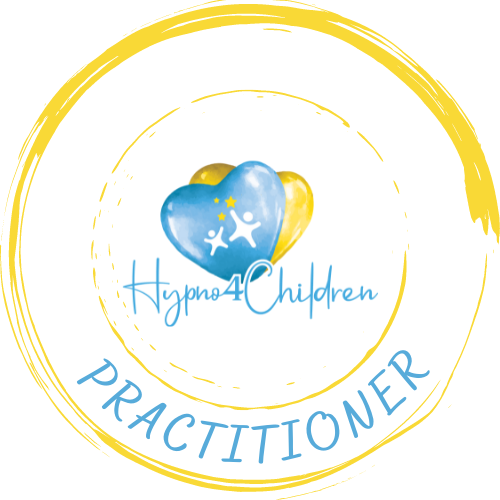Hypnotherapy FAQs
|
Below are some frequently asked questions (FAQs) about hypnotherapy and hypnosis. If your query is not answered below, please drop me a line, as I will be happy to help you.
|
How does hypnotherapy work and what is solution focused hypnotherapy?
When your own mind drifts into thinking, your thoughts meander from one thing to the next, in an intricately woven tapestry seemingly with no form. In a sense, when a hypnotherapist speaks to you during hypnosis, it is as if their words and positive suggestions embroider your own tapestry of thoughts and this is how hypnotherapy works. You can integrate these new ideas unconsciously as you allow your own thoughts to wander. The suggestions that are made in a hypnotherapy session always come from your desired outcome, which is why during sessions we will always focus on what you want (the “solution state”), not what you don’t want. Some schools of hypnotherapy specifically refer to this as "Solution Focused Hypnotherapy", but all effective therapy revolves around your own solution state.
What is cognitive hypnotherapy?
Cognitive hypnotherapy, devised by Trevor Silvester at the Quest Institute, is a collection of techniques pulled together from the best practices of multiple disciplines and schools of psychotherapy, including CBT (Cognitive Behaviour Therapy), Solution Focused Hypnotherapy, Human Givens, Gestalt Therapy and the work of eminent psychologists including Virginia Satir, Fritz Perls, Carl Rogers, Gil Boyne and Milton Erickson. Cognitive hypnotherapy meets you where you are, with your own appropriate solution to the problem, rather than prescribing a fixed method or particular brand of psychotherapy that may be at odds with what you need. Instead, a cognitive hypnotherapist will blend all of the best tools and techniques, working with your uniqueness as an individual. Research has shown that cognitive hypnotherapy provides the most effective tools for change that we know about so far. Cognitive hypnotherapy is therefore an ever changing model of therapy that is updated with new techniques as we discover more and more through neuroscience, always bringing you the best of what is available.
Do I need to be able to visualise to have hypnotherapy?
Hypnotherapists often use guided imagery to induce a state of relaxation. However, the ability to visualise is not a prerequisite for hypnotherapy treatment. Clients who cannot see pictures in their mind (known as “aphantasia”) still possess the ability to receive information categorised as “visual input” because it is the brain that “sees”, not the eyes. The brain interprets information signals, coming in through the eyes, from the external world and then interprets that data, processing it into something that can be understood by the mind of the receiver (i.e. you). Because cognitive hypnotherapy and Wordweaving™ utilise language skills, the therapist is able to use words that are associated with the brain’s other representational systems; the auditory and kinaesthetic senses, instead of visual imagery. If your mind makes a “picture” with words, feelings or sounds rather than imagery, that is just fine; whatever works for you, works for you and you will have your own sense of this. Cognitive hypnotherapy is an adaptable set of techniques, so if hypnotherapy is not right for you, then we can use other techniques from NLP and psychotherapy to make the changes that you want.
What is Wordweaving?
Wordweaving™ is a particular technique used in cognitive hypnotherapy, that was devised by Trevor Silvester of the Quest Institute. If you, as the client, speak about your problem, you will use specific words to describe that experience because those words have specific meaning to you. As words are merely a symbol of the thing they represent, words can have different meanings to different people, so how a hypnotherapist uses language is therefore critical to the effect of the therapy. The word “sea” for example, can mean a lovely happy place to swim for one person, whilst to another, who has perhaps suffered a traumatic experience, the word “sea” may induce a state of terror.
Wordweaving™ is a creative process where the hypnotherapist uses your own spoken words, which means that the therapeutic effect is highly targeted towards you as an individual. Working with words and suggestions that are essentially coming from your own unconscious, this form of therapy is extremely effective as it utilises the path of least resistance through your subconscious mind. A hypnotherapist employing Wordweaving™ as a tool, can deliver therapy without the aid of generic “one size fits all” hypnotic scripts. This gives you a truly personalised experience that works quickly to awaken your inner resources, so that you can bring your own solution state to your conscious mind.
Wordweaving™ is a creative process where the hypnotherapist uses your own spoken words, which means that the therapeutic effect is highly targeted towards you as an individual. Working with words and suggestions that are essentially coming from your own unconscious, this form of therapy is extremely effective as it utilises the path of least resistance through your subconscious mind. A hypnotherapist employing Wordweaving™ as a tool, can deliver therapy without the aid of generic “one size fits all” hypnotic scripts. This gives you a truly personalised experience that works quickly to awaken your inner resources, so that you can bring your own solution state to your conscious mind.
How can hypnotherapy treat my condition?
The list of conditions for which hypnotherapy can be used as a treatment is fairly inexhaustive. Below is a list of common issues for which hypnotherapy has proved an effective treatment. If your medical condition, psychological condition, compulsive habit or other issue is not listed below, please contact me for further information so that we can discuss how I can help you.
- Anxiety
- Stress
- Social anxiety
- Panic attacks
- Weight/eating issues
- Depression
- Low self-esteem
- Insomnia
- Compulsive behaviours
- Low energy/fatigue
- Long Covid
- Lack of motivation
- Anger management
- Exam nerves
- Performance nerves
- Interview skills
- Presentation skills
- Sports performance
- Music performance
- Pain management
- Irritable Bowel Syndrome
- Hair pulling
- Fear of Flying
- Fear of Dogs
- Fear of Animals
- Fear of Spiders
- Fear of Child Birth
- Child Birth Management
- Chronic Fatigue Syndrome (ME)
- Fear of Dentists
- Fear of Doctors
- Fear of medical interventions
- Money Blocks
- Headaches
- Migraines
- Transitioning to retirement
- Relationships
- Relationship break-ups
- Grief and loss
- Bereavement
- Trauma
Are there conditions for which hypnotherapy is not suitable?
When working with clients I am guided by the Code of Ethics of the National Council for Hypnotherapy (NCH) and the Complimentary & Natural Healthcare Council (CNHC). I am unable to work with the following conditions as they are contraindicated for treatment with hypnotherapy:
- Epilepsy
- Psychosis (Schizophrenia, Personality Disorder)
- Bi-Polar Disorder
|
To book a coaching programme that will have you Back In Tune with your true self, call or email me now. The first step is to book your free 20 minute discovery call to discuss the outcome you are looking for, explore how this coaching can work for you and ask any questions you may have.
Please visit the other web pages for further information on coaching and therapy or contact me using the button below. |
Locations
Online - via Zoom, wherever you are in the UK or overseas. I work with my clients wherever they are in the world, so that you can access the resources you need at your own convenience. Face to Face Sessions are held on specific days at: Zen Rebel Studios, Midsomer Norton, BA3 2DT Elm Hayes Surgery, Paulton, BS39 7SF The Lansdown Clinic, Lansdown Road, Bath, BA1 5EE Office Hours Monday 9.00am - 2.00pm Tuesday 9.00am - 3.30pm Wednesday 9.30am - 4.00pm Friday 10.00am - 6.00pm Email, text or call (please leave a voicemail) |





